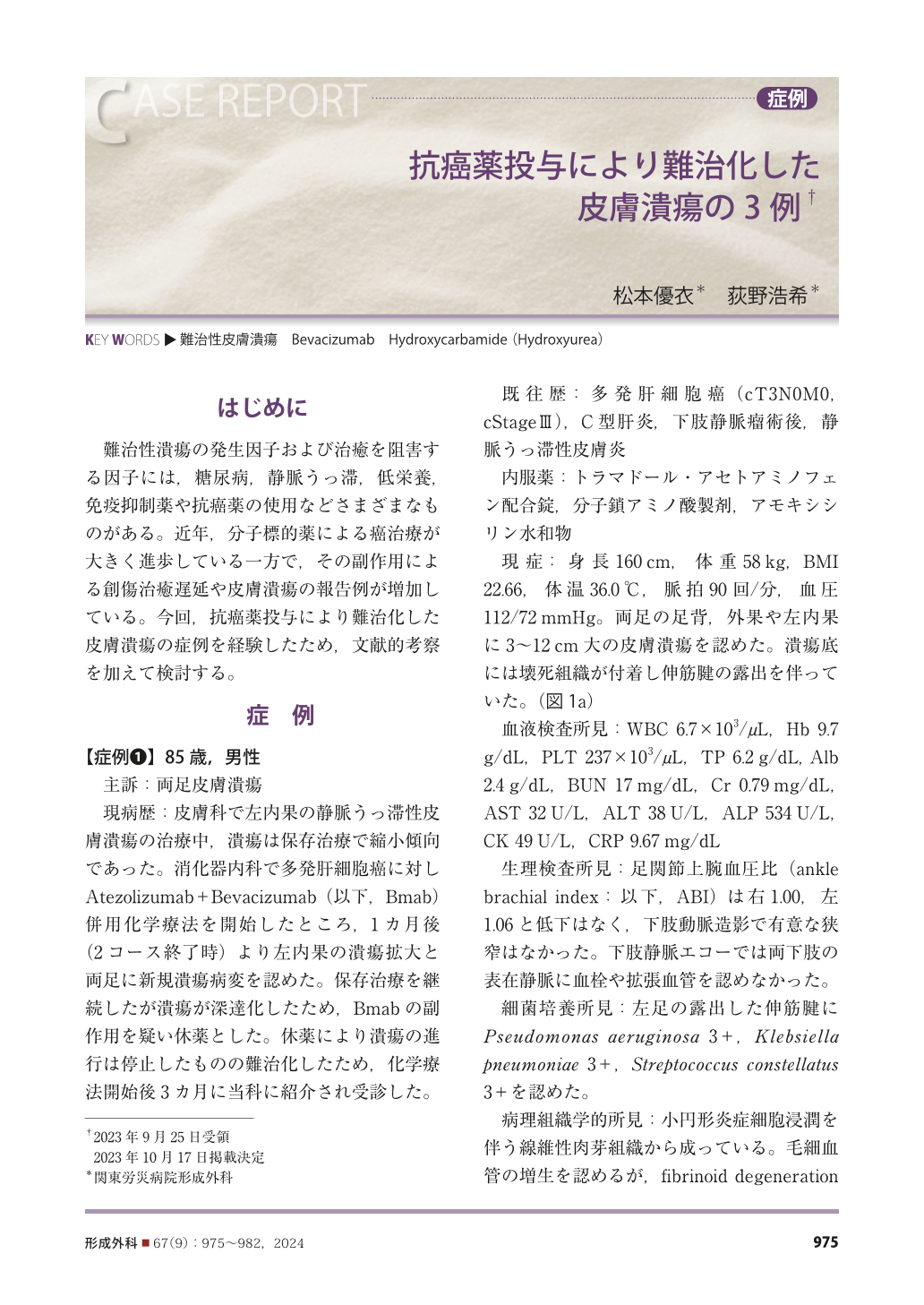Japanese
English
- 有料閲覧
- Abstract 文献概要
- 1ページ目 Look Inside
- 参考文献 Reference
- サイト内被引用 Cited by
はじめに
難治性潰瘍の発生因子および治癒を阻害する因子には,糖尿病,静脈うっ滞,低栄養,免疫抑制薬や抗癌薬の使用などさまざまなものがある。近年,分子標的薬による癌治療が大きく進歩している一方で,その副作用による創傷治癒遅延や皮膚潰瘍の報告例が増加している。今回,抗癌薬投与により難治化した皮膚潰瘍の症例を経験したため,文献的考察を加えて検討する。
We report three cases of refractory skin ulcers that were attributed in part to anticancer drug therapy. One patient had a bevacizumab-induced refractory skin ulcer, and the other patients had hydroxycarbamide-induced refractory skin ulcers. Bevacizumab (Bmab), a monoclonal antibody against vascular endothelial growth factor, is a molecular targeted drug that inhibits angiogenesis. Bmab is useful in the treatment of patients with inoperable rectal cancer or hepatocellular carcinoma and is known to delay wound healing. Skin ulcers can be caused by a prolonged administration of hydroxycarbamide, which is an antagonist of nucleic acid metabolism that is used to treat myeloproliferative disorders. The development of skin ulcers is thus an indication for discontinuing the administration of agents such as Bmab and hydroxycarbamide. Bmab-induced skin ulceration is a rarely observed and poorly established complication, and our patient experienced ulcer deepening and tendon exposure due to a delayed withdrawal of this drug. A discontinuation of anticancer drugs implies the discontinuation of cancer treatment, and intervention by the patientʼs primary physician is important in such cases. Ulcer healing can be complicated in patients with anemia, undernutrition, Pseudomonas aeruginosa infection, venous stasis, or anticancer drug administration. In such cases, drug discontinuation and conservative treatment alone are ineffective, and treatment can be challenging; surgical treatment (e.g., skin grafting) should therefore be considered.

Copyright© 2024 KOKUSEIDO CO., LTD. All Rights Reserved.


